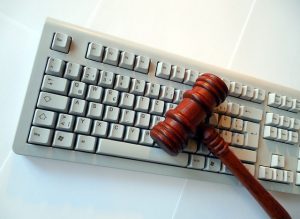Legislation
 On this page I will touch on the key UK Information Security and Computer laws that we must keep in mind as Penetration Testers. I recently had to review these Laws/Acts as part of my ongoing professional development, so thought it would be useful to create a quick page to pull them all together in a central place and write up some info on them. I have pulled content from other sources mainly Wikipedia, however I have clearly sited where used. (This is more for my own revision however someone else in my position may also find the content useful, however is still very much under construction).
On this page I will touch on the key UK Information Security and Computer laws that we must keep in mind as Penetration Testers. I recently had to review these Laws/Acts as part of my ongoing professional development, so thought it would be useful to create a quick page to pull them all together in a central place and write up some info on them. I have pulled content from other sources mainly Wikipedia, however I have clearly sited where used. (This is more for my own revision however someone else in my position may also find the content useful, however is still very much under construction).
Computer Misuse Act 2000
The Computer Misuse Act 2000 introduces three new criminal convictions as outlined by Wikipedia (January 2017).
- unauthorised access to computer material, punishable by 12 months’ imprisonment (or 6 months in Scotland) and/or a fine “not exceeding level 5 on the standard scale” (since 2015, unlimited);[7]
- unauthorised access with intent to commit or facilitate commission of further offences, punishable by 12 months/maximum fine (or 6 months in Scotland) on summary conviction and/or 5 years/fine on indictment;[8]
- unauthorised modification of computer material, punishable by 12 months/maximum fine (or 6 months in Scotland) on summary conviction and/or 10 years/fine on indictment;[9]
Data Protection Act 1998
The Data Protection Act 1998 defines 8 key principles as outlined by Wikipedia (January 2017):
- Personal data shall be processed fairly and lawfully and, in particular, shall not be processed unless:
- at least one of the conditions in Schedule 2 is met, and
- in the case of sensitive personal data, at least one of the conditions in Schedule 3 is also met.
- Personal data shall be obtained only for one or more specified and lawful purposes, and shall not be further processed in any manner incompatible with that purpose or those purposes.
- Personal data shall be adequate, relevant and not excessive in relation to the purpose or purposes for which they are processed.
- Personal data shall be accurate and, where necessary, kept up to date.
- Personal data processed for any purpose or purposes shall not be kept for longer than is necessary for that purpose or those purposes.
- About the rights of individuals e.g.[11] personal data shall be processed in accordance with the rights of data subjects (individuals).
- Appropriate technical and organisational measures shall be taken against unauthorised or unlawful processing of personal data and against accidental loss or destruction of, or damage to, personal data.
- Personal data shall not be transferred to a country or territory outside the European Economic Area unless that country or territory ensures an adequate level of protection for the rights and freedoms of data subjects in relation to the processing of personal data.
Investigatory Powers Act 2016 (Snooper’s Charter)
The Investigatory Powers Act 2016 aims to provide clear and transparent powers for the security intelligence services and law enforcement agencies, to carry out targeted interception of communications, bulk collection of communications data, and bulk interception of communications. The bill was approved by the House Of Lords of the 16th November 2016.
Regulation of Investigatory Powers Act (RIPA) 2000
The Regulation of Investigatory Powers Act (RIPA) 2000 is there to regulate the powers of interception of communications from public bodies. It was brought about by the growth in technology such as the internet and strong encryption. It enables certain public bodies to demand that ISP’s provide access to its customers communications and allows for mass surveillance.
Police and Justice Act 2006
Police and Criminal Evidence Act 1984
Human Rights Act 1998
